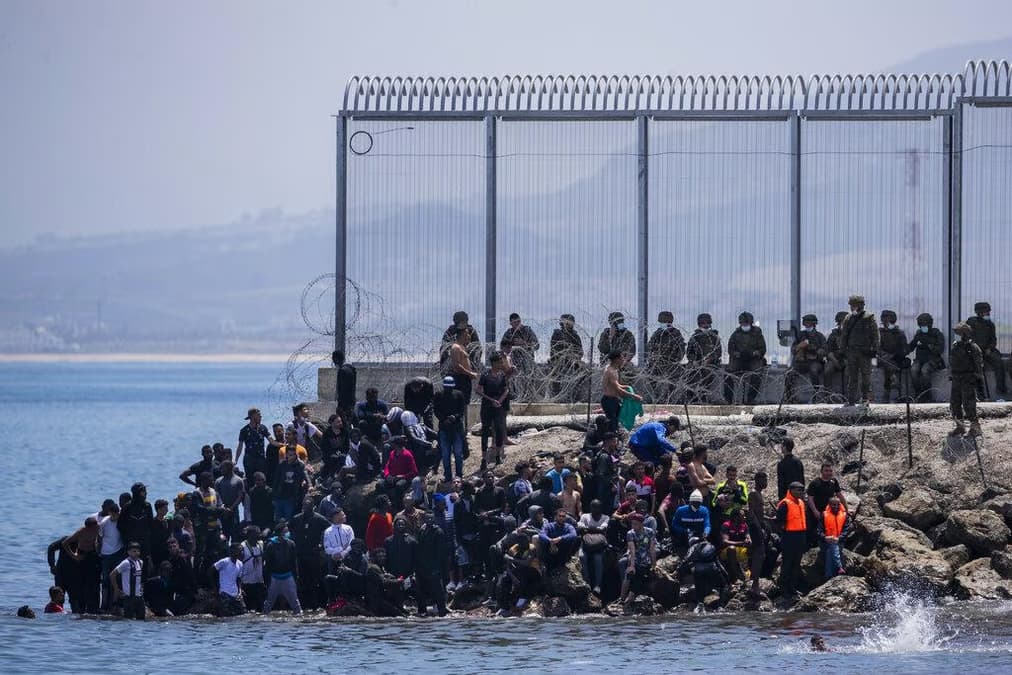On Tuesday, Spain’s Prime Minister Pedro Sanchez will embark on a three-day trip to West Africa while his left-wing administration deals with a significant increase in migrant arrivals, particularly in the Canary Islands.
Almost every day, the Spanish coastguard saves a vessel transporting dozens of African migrants towards the islands, situated off the northwest coast of Africa. This increase has caused the Atlantic archipelago to feel increasingly neglected by both Madrid and Brussels.
Sanchez is expected to visit Mauritania, The Gambia, and Senegal.
It remained unclear what incentives he might be able to offer, particularly to Mauritania, the main point of departure for migrants, a country he visited six months ago, to encourage the authorities there to increase their efforts to prevent migrants from embarking on their journeys.
Following his meeting with Sanchez on Friday, Fernando Clavijo, the regional leader of the Canary Islands, expressed his belief that “over 150,000 refugees” are prepared to embark on their journey from Mauritania’s coastline.
The Canary Islands and Spain are often the initial destinations for West African migrants, who usually continue to other European countries, particularly France.
The number of arrivals has more than doubled in the past year. From January 1 to August 15 this year, 22,304 migrants arrived on the Islands, compared to 9,864 in the same period in 2023—an increase of 126 per cent, according to figures from the interior ministry.

Migrant numbers have increased throughout Spain, with 31,155 arrivals by mid-August, a 66.2-percent increase from the 18,745 seen a year earlier.
Historical data indicates that this upward trend will continue, especially as the autumn brings better weather conditions for crossing the Atlantic waters.
Last year, there were a record 39,910 arrivals, and current levels suggest that 2024 is on track to set a new record. This confirms the Atlantic route to the Canaries as the main pathway for migrants despite its hazardous nature.
The strong currents make the route very dangerous, leading to numerous deaths and disappearances each year as people attempt to cross in overloaded and often unseaworthy boats.
Southern Spain has seen an increase in arrivals, not just in this area but also in the small enclave of Ceuta, which has recently experienced a significant influx of new arrivals from West Africa.
One of the main challenges in these areas is unaccompanied minors who cross the borders alone and cannot be legally returned, and their presence has had an impact on Spain’s internal politics.


